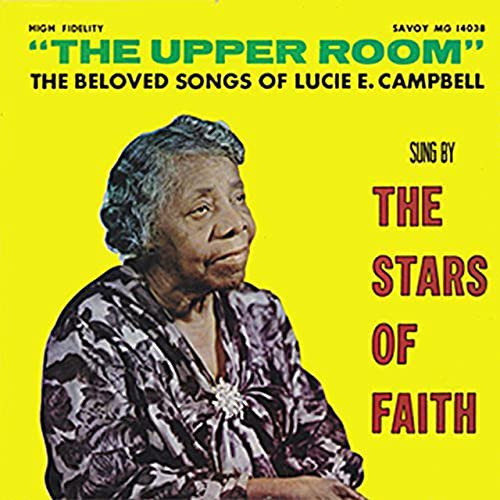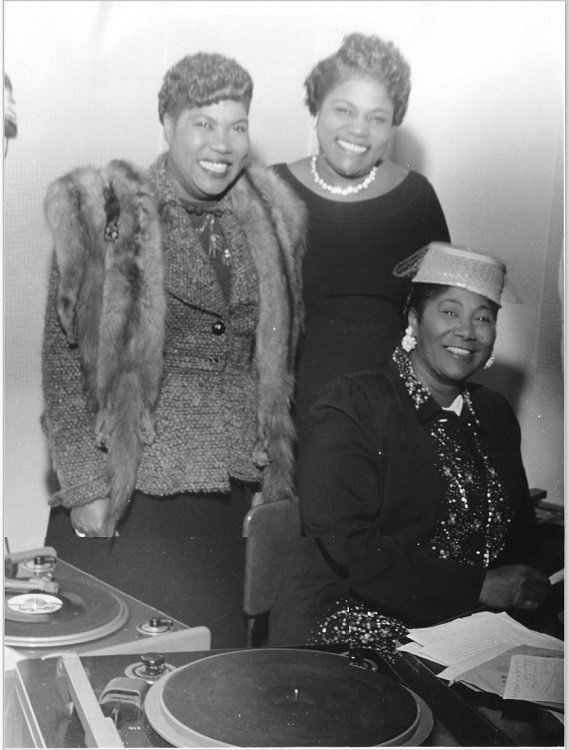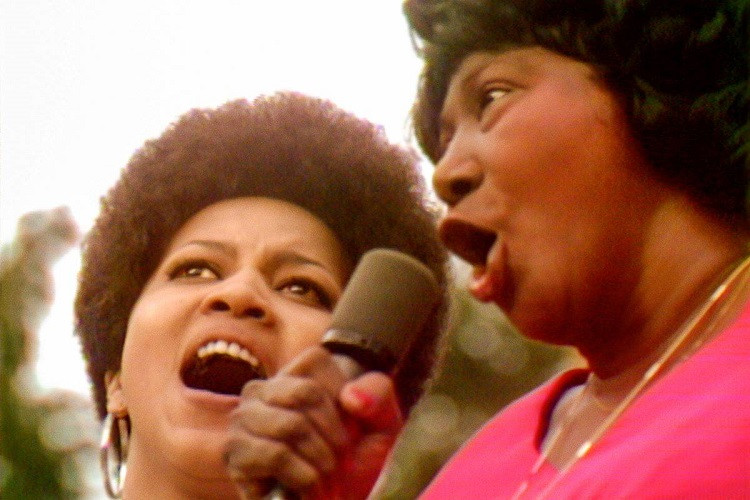Mahalia Jackson, universally hailed as the “Queen of Gospel,” left an indelible mark on music history. However, understanding her profound impact requires exploring her relationships with other women singers, revealing a rich tapestry of mutual inspiration and collaboration. Throughout her career, Mahalia Jackson’s journey intertwined with remarkable women who served as mentors, peers, and successors, each contributing to and drawing strength from this powerful network. To truly appreciate the depth of Mahalia Jackson’s artistry, one must delve into the world of Mahalia Jackson Songs and the women who helped shape her sound and legacy.
Growing up in the vibrant musical landscape of 1920s New Orleans, Mahalia Jackson immersed herself in a diverse range of vocal styles. She often spoke of Sister Burke from her childhood Baptist church, a woman who moved congregations with a raw, emotional delivery that transcended formal technique. This early influence instilled in Jackson an appreciation for soulful expression, yet she also recognized the value of structured learning. At home, she diligently studied recordings of her idol, blues icon Bessie Smith, alongside classical contralto Marian Anderson and operatic soprano Grace Moore. Jackson meticulously analyzed their tone, diction, and breath control, absorbing lessons from across genres to hone her unique vocal style that would define Mahalia Jackson songs.
 Lucie Campbell, a prolific songwriter and gospel music leader
Lucie Campbell, a prolific songwriter and gospel music leader
When Mahalia Jackson relocated to Chicago in 1931, Sallie Martin, a prominent figure in the gospel scene, became a crucial ally. Martin, a celebrated singer and co-founder of the Martin and Morris Music Studio, played a pivotal role in introducing Jackson to Chicago’s competitive gospel circuit. Martin recounted accompanying Jackson to smaller, burgeoning churches, as established venues were initially hesitant to embrace her distinctive style. At the National Baptist Convention, Lucie Campbell, a highly respected songwriter and gatekeeper of this significant Black Christian gathering, initially showed reservation. However, Campbell eventually recognized Jackson’s talent and provided her with a platform at the annual convention. This pivotal moment significantly boosted Jackson’s career, especially after she achieved immense success with Campbell’s composition, “In the Upper Room.” This song became one of the most beloved Mahalia Jackson songs, solidifying her national recognition. “When I’d leave the convention, I’d be booked up for a whole year,” Jackson recalled, emphasizing the convention’s role in expanding her reach and solidifying her place within the gospel community.
 Sister Rosetta Tharpe, Ernestine Washington, and Mahalia Jackson, pioneers of gospel music
Sister Rosetta Tharpe, Ernestine Washington, and Mahalia Jackson, pioneers of gospel music
The 1940s saw Mahalia Jackson songs resonate alongside the voices of her contemporary gospel luminaries. Artists like Roberta Martin, Ernestine Washington, and Sister Rosetta Tharpe, each possessing a unique style and approach to the sacred and secular realms, became close associates. Sister Rosetta Tharpe, in particular, carved a distinctive path by incorporating jazz influences into her gospel recordings for Decca in the late 1930s, a move that initially caused some consternation for Jackson. Yet, Tharpe’s electrifying performances, such as her appearance on TV Gospel Time in the 1960s, underscored her deep church roots and her pioneering role in rock and roll. Another prominent figure who emerged during this era was Clara Ward. Ward, who even frequented Jackson’s beauty salon in her early career, eventually gained renown for her flamboyant performances with the Clara Ward Singers, bringing the dynamism of Black gospel music to diverse venues, from nightclubs to Disneyland. While their styles differed, these women, including Jackson, contributed to the vibrant and evolving landscape of Mahalia Jackson songs and gospel music as a whole.
By the 1950s, Mahalia Jackson had ascended to the pinnacle of gospel music, yet she remained invested in nurturing emerging talents. She expressed immense pride in the progress of The Caravans, particularly Albertina Walker and Gloria Griffin, who blossomed into stars. Jackson also served as a mentor to Princess Stewart, who proudly acknowledged studying “under Mahalia Jackson” alongside her conservatory training. Jackson’s influence extended to Detroit, where she frequented Reverend C.L. Franklin’s church and profoundly inspired his daughter, Aretha Franklin. Years later, Aretha Franklin paid homage to her mentor by singing at Mahalia Jackson’s funeral, a testament to the deep and lasting impact of Mahalia Jackson songs and Jackson’s mentorship.
 Mavis Staples and Mahalia Jackson, a powerful connection between gospel generations
Mavis Staples and Mahalia Jackson, a powerful connection between gospel generations
Back in Chicago, a young Mavis Staples absorbed every lesson from Mahalia Jackson. Mavis, accompanied by her father Pops Staples, often visited Jackson’s home, where she was captivated by the gospel icon’s presence and wisdom. Staples’ 1996 album Spirituals, a heartfelt tribute to Jackson, underscores this profound influence. The documentary Summer of Soul captures a poignant moment at the 1969 Harlem Cultural Festival, featuring Staples performing alongside Jackson. This performance, occurring just years before Jackson’s passing, is deeply significant for Staples, representing a symbolic passing of the torch and a continuation of the legacy of Mahalia Jackson songs.
The enduring power of Mahalia Jackson songs continues to resonate with contemporary artists. Ledisi and Danielle Brooks have both embodied Jackson’s spirit and voice in the film Selma and the biopic Mahalia, respectively, bringing her story to new audiences. In the wake of George Floyd’s tragic death, Irish singer Sinéad O’Connor released a moving music video of Jackson’s signature song, “Trouble of the World.” O’Connor, holding a sign bearing Jackson’s image, aimed to amplify Jackson’s voice as “the soundtrack for the Black Lives Matter movement,” demonstrating the timeless relevance of Mahalia Jackson songs in addressing contemporary social issues.
By examining Mahalia Jackson’s career through the lens of her connections and influence, rather than solely focusing on her individual achievements, we uncover a vital network of women artists and organizers. These women, through collaboration and mutual support, created opportunities and profoundly moving musical experiences. Together, they not only made music but also shaped history, ensuring the lasting impact of Mahalia Jackson songs and the powerful legacy of women in gospel music.
